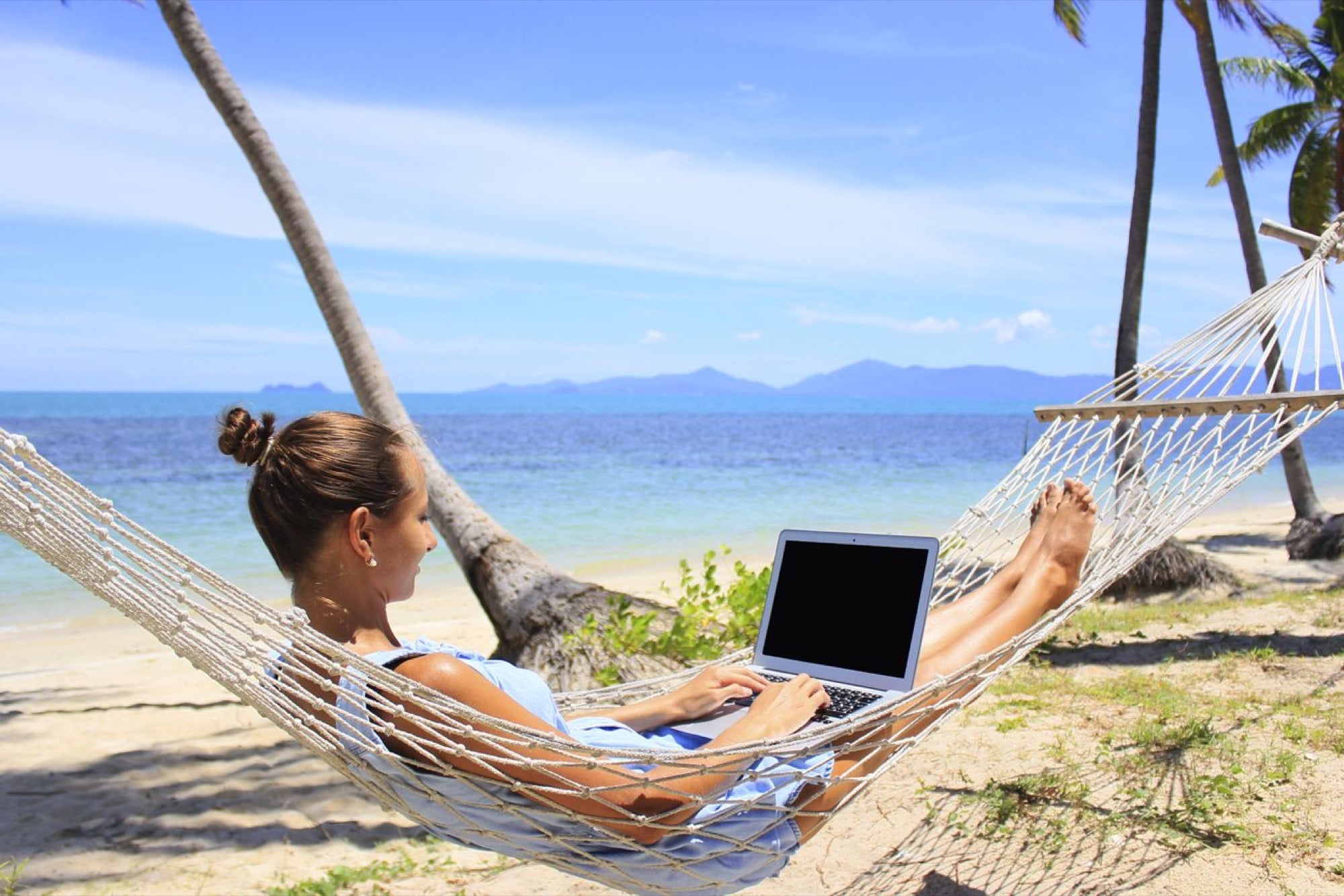By Theresa Goodwin
International visitors, who have chosen to live and work remotely in Antigua and Barbuda for the next two years, are sharing their experience and how they have been adapting to island life.
Jessica and Tim Duce, who work in the communications industry in Canada, say they fell in love with Antigua and Barbuda during previous trips and opted to migrate to the twin island destination after learning and researching about the options outlined in the Nomad Digital Residence Programme that was launched last November.
The long-stay visa programme is designed for persons desirous of working remotely from a safe Caribbean island with access to all modern amenities.
“We have always felt that we would have loved the opportunity to be able to work from paradise, as it were, and the Nomad visa gave us an opportunity to do that efficiently; to be able to go to the beach after work or school, just a totally different lifestyle,” said Tim.
The couple is now finalising the registration process for their children who will eventually be integrated into the local school system.
Another couple, Marie and Dave Ross from the United Kingdom, also explained that “we got caught up in the lockdown last year and during that time we were offered some project work by various companies. When we returned to the UK and saw the Digital Nomad Programme that just suited this new way of working; working remotely in a different time zone”.
The programme has also worked out well for another UK couple, Dawn Thomas and her husband, who initially travelled to the island to visit their daughter.
Thomas said her family started to explore their options after her daughter announced she was expecting a child and they felt it would be costly to depart Antigua and Barbuda and then return at a later date.
In relation to her work as a personal assistant, Thomas said her boss informed her of her options as soon as she ended her 14-day quarantine.
“I diligently wake up every morning at 4 to work and that is what I have been doing ever since. It has worked out for myself and my husband,” she said.
The experiences were shared during a webinar that was held on March 16 to provide further insight into the two-year programme.
The forum was organised by the Antigua and Barbuda High Commission (London), in partnership with the Commonwealth Enterprise and Investment Council and the Nomad Digital Residence Programme.
Chief Immigration Officer Katrina Yearwood, who took part in the sessions, explained that her department is in the process of fine-tuning the website platform, which aims to be a one-stop-shop for logistics and processing for prospective applicants.
Foreign Affairs and Immigration Minister, EP Chet Greene, also noted that “from a policy standpoint, the government envisions the Nomad Digital Residence Visa Programme as a resilient policy response to diversifying the tourism industry in light of the current challenges”.
He said the programme provides the opportunity to welcome more long-term visitors and the benefits of their economic activity while simultaneously diminishing the risks associated with in-and-out visitors in a global pandemic.
According to the programme’s website, all applicants must be currently employed or self-employed, while paying income taxes to their place of residence or native country.
In order to qualify, the successful candidates must be able to work away from home with the use of mobile technology while on the go.
The NDR visa does not grant the holder or their dependents the right to seek employment from any local registered business, organisation, institution, or any form of employment within Antigua and Barbuda.
The fees associated with the programme are US$1,500 for a single individual, US$2,000 for couples, and US$3,000 for a family of three or more.

